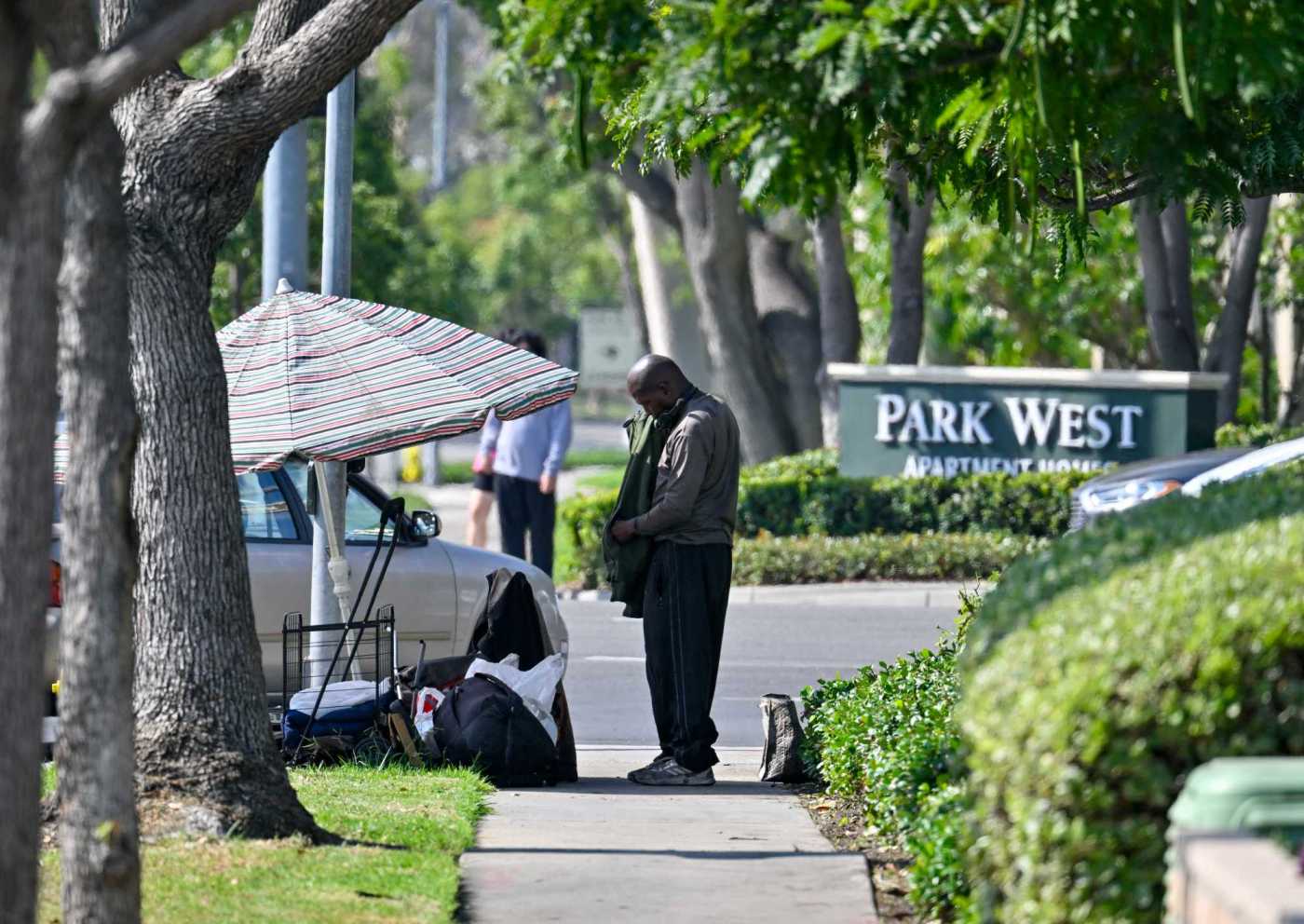The Irvine City Council is paving the way for city police to eventually clear homeless encampments around town, but pledged to slow walk implementation and to keep enforcement “humane.”
Irvine’s new anti-camping ordinance would prohibit unauthorized camping, including open fires, and the storage of personal property in public areas and on private property without the owner’s consent. It also establishes procedures for the abatement of encampments, including prior notice and due process for individuals affected by enforcement actions.
However, the city would not begin enforcement of the new policy until some time after a new council is sworn in and takes a second vote to approve the changes.
Second readings are typically perfunctory votes, but a new council could decide to make changes to this policy. As Irvine completes its transition to district representation, the council will grow from five to six members in January. Then, it will add a seventh final member after a special election is held in April to fill the seat vacated by Councilmember Larry Agran, who is on his way to becoming the city’s mayor after last week’s elections.
It was Agran who suggested the second reading of the new policy occur after the next council takes office.
And even if approved then, councilmembers suggested to city staff that they make the rollout of the policy deliberately slow as the city works in tandem with law enforcement to get additional homeless services, including temporary housing, up and running.
Officials have said the city plans to operate emergency, transitional and permanent housing options for currently unhoused individuals by 2026. Yet, that timeline is already in question after the council quickly reversed a decision to purchase property for the city’s first shelter.
Irvine’s previous anti-camping law did not address property storage and encampment issues. It was limited to regulating sleeping “during certain times in certain places,” Irvine Police Commander Dave Klug said.
“The new ordinance approaches encampments more holistically,” Klug said.
In any event, case law had prevented Irvine from enforcing its anti-camping ordinance before June of this year, Klug said.
That’s when the Supreme Court ruled on Grants Pass v. Johnson, deciding that cities can enforce bans on people sleeping in public spaces. Homeless advocates argue such laws amount to cruel and unusual punishment since they effectively criminalize being homeless, but the court disagreed 6-3 along ideological lines. Many OC cities praised the decision.
To assuage concerns about criminalizing homelessness in Irvine, the council explicitly directed staff to implement its new policy “in a humane manner.”
City staff and police officers will have discretion as to what that means in practice.
“The important thing here is for us to, at this time, be very careful about implementation and enforcement and that we give great discretion to our police and others to make sure we don’t start criminalizing homelessness without thought to the larger program that we’re trying to erect here,” Agran said. “This requires, in my judgment, very careful attention from the city manager’s office and the police in exactly how this is implemented.”
At least until Irvine opens a shelter in town, the city will refer unhoused people affected by the enforcement of its new anti-camping policy to housing referral services managed by the county or connected nonprofits, officials said. The city will also store personal property claimed from unhoused people for 90 days or longer.
Last week, the council reversed course on purchasing property on Armstrong Avenue in the Irvine Business Complex for the city’s first homeless shelter.
The transaction, initially approved by the council, had not been vetted by city commissions or gone through the normal course of public outreach, raising concerns from nearby residents about transparency. City staff said they had sent the plan straight to the council due to a unique, but urgent, opportunity to purchase real estate at below-market value. Ultimately, the city forfeited a $1 million deposit by backing out of the deal.
“The Armstrong property was identified as not the correct site, but the thesis of trying to identify our affordable housing-related regulations to drive the prevention and growth of future homelessness I think is foundational to our ongoing plan,” City Manager Oliver Chi said Tuesday.
Councilmember Kathleen Treseder was the only councilmember to vote against the new ordinance – out of concern, she said, that it does not require the city to do outreach with unhoused individuals before beginning the abatement process of their encampments. And, it authorizes the city to sweep an encampment with what she believes to be insufficient notice to affected individuals, she said.
The ordinance allows the city to clear an encampment after 24 hours of notice to affected individuals, and the city can proceed with expedited abatement actions in cases of “immediate health and safety risks.” Staff suggested that law enforcement will also use discretion to extend that notice period in some cases.
“I will vote to protect the most vulnerable,” Treseder said. “And, these homeless folks are the most vulnerable.”
Chi said there are likely 150 to 200 unhoused people living in Irvine.





